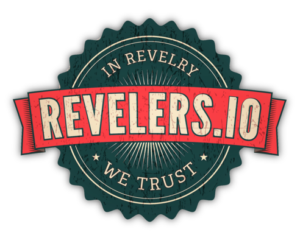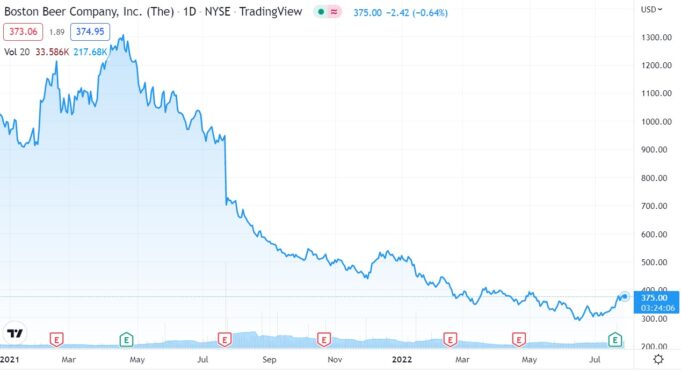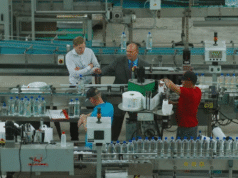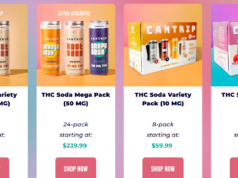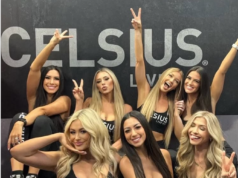Boston Beer: Hard Seltzer Bubble Has Popped, Stock Is Below March 2020 Levels.
SeekingAplha – Alexander Ebbinghouse

Boston Beer Company’s bubble has popped, and the stock is close to hitting a long-term support level. The share price is now below the Covid-induced lows of March 2020, and is starting to look attractive from a long-term value investing standpoint.
With a Price-to-Sales of only 1.9x, the stock is getting cheap given continued revenue growth and future potential.
Summary
- The Boston Beer Company is a well-known stock which has come down significantly in value over the last year.
- The share price rose meteorically in 2020 and topped out in 2021, due to a bubble being formed, in part by rapid growth of its Truly Hard Seltzer brand.
- The company initially overestimated demand for their hard seltzers, leading to an epic crash and continued bear market, which may be finally hitting a support level.
- With a Price-to-Sales ratio of 1.9, the stock is getting cheap given the continued revenue growth despite short-term operating margin collapse.
- Operating margins and ROE will normalize over time as supply chain issues and other problems get sorted out by management.
Investment Thesis
The Boston Beer Company (NYSE:SAM) has experienced a major reversal in terms of the share price over the last year. After reaching a high of nearly $1,300 per share in early 2021, the stock has collapsed over 75% to hit a fresh 52-week low of around $290. This phenomenon was in part due to an operating margin collapse on the back of the Truly Hard Seltzer debacle, in which management severely overestimated demand for their products.
Now that the ‘hard seltzer bubble’ has popped, the stock looks a lot more attractive on valuation. The Price-to-Sales metric shows only 1.9x, which is reasonable given continued revenue growth. Gross margins have been hit more recently, but with a potential rebound in operating margins next year, the stock could once again become a favorite for beverage company investors. Return on equity should normalize as well, and new product rollouts could contribute substantially to near-term and long-term shareholder value.
Introduction
Beverage companies are some of my favorite companies to research and invest in. We have all more than likely played the game ‘Lemonade Stand’ when we were children, as it teaches the basics of running a business and how to plan effectively for controlling costs, pricing, volumes, etc. I have always been interested in different drinks and brands ever since I was a kid, with Coca-Cola being my main introduction into these types of companies and a jump-off point for potential investing opportunities. Looking back, some of the first stocks I ever purchased were Pepsi (PEP) and Coke (KO), among others.
Since the beginning of my investment journey, one of my most successful investments has been a beverage company by the name of Celsius Holdings (CELH). I bought my first shares in Celsius in early 2020, just before the pandemic rattled global markets, and the beverage company quickly became my first 10-bagger in the stock market. I still hold the stock to this day, and have authored several articles on the company, with it being the subject of my debut Seeking Alpha article in April 2021.
The point of speaking on these past investments illustrates that this sector has produced many great long-term investments for a variety of people. From Warren Buffett buying Coca-Cola stock long ago to newer market participants, such as myself, investing in energy-drink/fitness beverage companies, there are many reasons to like the sector. Boston Beer Company is now on my radar, as I was aware of the surging stock in 2020, but wanted to see the stock price settle back into a normal trading range before starting a position. The massive collapse in the shares appears to be a temporary problem, and not a fundamental change in how the company’s products are viewed in the marketplace or the state of the industry as a whole. For this reason, value investors may latch onto the company sooner rather than later, as the stock has just recently traded at a fresh 52-week low, below the Covid-induced crash prices of March 2020.
